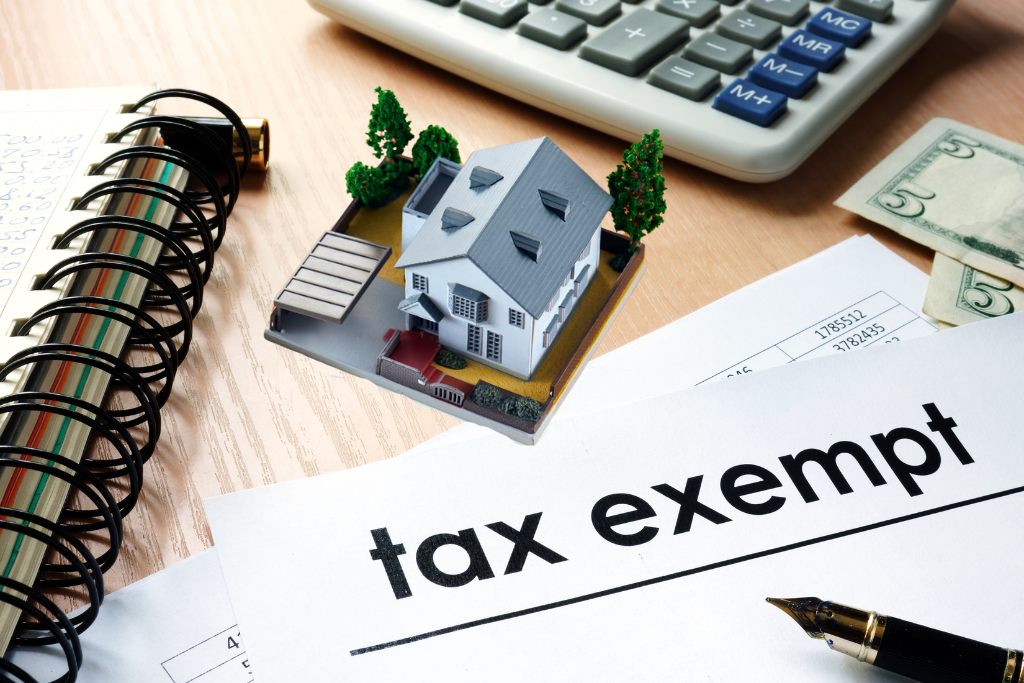
29 Aug Capital Gains Tax Exemption: How the Government Incentivises Buying and Selling Homes
Did you know the government basically pays you – or at least gives you major incentives – to buy and sell homes? It’s true, and if you’re a homeowner, you need to understand how this works because it could save you tens of thousands of dollars.
In real estate, we call it the capital gains tax exemption, and honestly, it’s one of the best-kept secrets in homeownership.
What Is the Capital Gains Tax Exemption?

The capital gains tax exemption lets sellers exclude up to $250,000 in profit (or $500,000 for married couples) on the sale of your primary residence. That means if you bought your house for $300,000 and sell it for $550,000, you don’t pay a penny in capital gains tax on that $250,000 profit.
Think about that for a second. The government is essentially letting you keep a quarter of a million dollars in profit completely tax-free. For couples, it’s even better – you can pocket up to half a million in profit without owing Uncle Sam anything.
This isn’t some complicated loophole or sketchy tax strategy. It’s a legitimate benefit that Congress created specifically to help homeowners build wealth through real estate.
The Problem: It Hasn’t Changed Since 1997
Here’s where things get interesting (and a little frustrating). This exemption was introduced in 1997 and has never been tied to inflation. That means the $250,000/$500,000 numbers have stayed exactly the same for over 25 years, even though home prices have climbed more than 260% nationally.
Let me put that in perspective: if this provision had kept pace with home price inflation, the cap would now be over $600,000 for individuals and $1.3 million for couples.
So while your home’s value has skyrocketed, your tax exemption has stayed stuck in 1997. That’s a problem for a lot of homeowners.
Who This Actually Affects
The capital gains tax affects one in three homeowners in America. That means there are millions of homeowners – maybe you’re one of them – who have profits exceeding those exemption amounts and are paying hefty taxes when they sell their homes.
This isn’t about house flippers or real estate investors. This is about regular people selling their primary residence – the home they’ve lived in and loved for years.
Think about it: if you bought a home in a desirable area 10-15 years ago, there’s a good chance your profit could exceed these limits, especially in markets like California, New York, or even parts of Arizona where home values have exploded.

The Real-World Impact on Homeowners
Here’s what this means for actual homeowners:
Let’s say you’re a couple who bought your Phoenix home for $200,000 in 2010. Today, it’s worth $800,000. Your profit is $600,000, which means $100,000 of that gain would be subject to capital gains tax (since couples can exclude $500,000).
At current capital gains rates, you could owe $15,000-$20,000 or more in taxes just for selling your primary residence. That’s money coming directly out of your equity – money you were probably counting on for your next home purchase or retirement.
Why This Matters for Your Selling Decision
The fear of losing a large portion of equity profits to the IRS has become one of the biggest deterrents to selling for many homeowners, especially those whose retirement goals depend on the profits from their long-term home.
I see this all the time with my clients. They want to downsize or move to a different area, but when they calculate the potential tax hit, they decide to stay put. This creates a domino effect that reduces housing inventory and makes it harder for other buyers to find homes.
It’s particularly challenging for:
- Empty nesters who want to downsize but would face huge tax bills
- Retirees who planned to use home equity for retirement funding
- Families who want to relocate but can’t afford the tax consequences
- Anyone who’s lived in their home long enough to see significant appreciation

What Might Change (And When)
There’s growing recognition that these exemption amounts need to be updated to reflect current home values and inflation. Some proposals suggest:
- Increasing the exemption amounts significantly
- Tying future exemptions to inflation or home price indices
- Creating different rules for different markets
- Adjusting based on how long you’ve owned the home
The goal is to free up housing inventory by removing this major financial deterrent to selling. When people aren’t afraid of massive tax bills, they’re more likely to sell and move, which creates more options for other buyers.
How to Use This Knowledge to Your Advantage
Even with current limitations, the capital gains exemption is still an incredible benefit that you should factor into your real estate decisions.
If You’re Thinking About Selling
Calculate your potential tax liability early so there are no surprises. If you’re approaching the exemption limits, consider:
- Timing your sale strategically
- Exploring ways to reduce your taxable gain
- Understanding how improvements and selling costs can offset profits
- Planning for the tax implications in your next purchase
If You’re Looking to Buy Your Next Home
The tax savings from this exemption can be a powerful tool for funding your move-up home or right-sizing into something smaller. That tax-free profit can become your down payment for the next chapter of your life.
Planning for the Future
Keep an eye on potential legislative changes that could increase these exemption amounts. If changes are coming, the timing of your sale could make a significant financial difference.
The Bigger Picture: Real Estate as Wealth Building

This exemption is one of the reasons real estate remains one of the best wealth-building tools available to regular Americans. Where else can you make hundreds of thousands of dollars in profit and pay zero taxes on it?
But you have to understand the rules to maximize the benefit:
- You must have lived in the home as your primary residence for at least 2 of the last 5 years
- You can only use this exemption once every 2 years
- The exemption applies to your primary residence, not investment properties
- Certain situations may qualify for partial exemptions
Making Smart Decisions with Professional Guidance
- Understanding capital gains implications should be part of every major real estate decision you make. Whether you’re buying your first home, considering a move-up purchase, or thinking about downsizing, these tax considerations can significantly impact your financial outcome.
This is especially important if:
- You’ve owned your home for many years and seen significant appreciation
- You’re in a high-value market where profits could exceed exemption limits
- You’re planning retirement and counting on home equity
- You’re considering relocating to a different area or state
Ready to Maximize Your Real Estate Tax Benefits?
If you’re thinking about selling or buying, understanding how capital gains exemptions affect your situation is crucial for making smart financial decisions. The rules can be complex, and the stakes are high when we’re talking about potentially tens of thousands of dollars in taxes.
I help clients navigate these considerations all the time, working with tax professionals and financial advisors to ensure you’re maximizing your benefits and minimizing your tax liability.
Call or text me at (602) 329-7782 , and I’ll be happy to walk you through how this exemption works for your specific situation. Whether you’re planning to sell, buy, or just want to understand your options better, let’s make sure you’re taking full advantage of this incredible government incentive.
Helping Arizona homeowners understand and maximize their real estate tax benefits while making smart buying and selling decisions.


